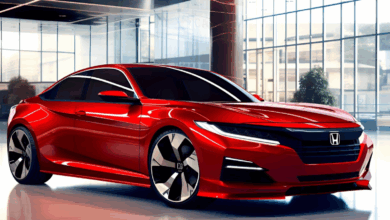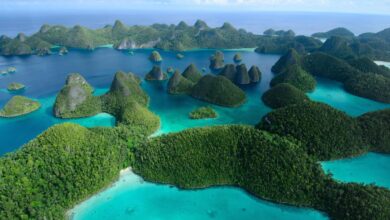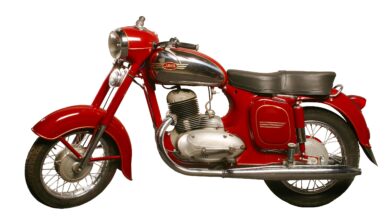Discover the Enchanting Charm of Jakarta: A Vibrant Urban Adventure
Introduction to Jakarta
Located on the northwest coast of Java, Indonesia, Jakarta is the country’s capital and largest city. With a population of over 10 million people, Jakarta is a bustling metropolis that serves as the economic, cultural, and political center of Indonesia. The city is known for its rich history, diverse culture, and modern infrastructure, making it a popular destination for tourists and business travelers alike.
History of Jakarta
Jakarta has a long and complex history that dates back to the 4th century. The city was originally a small trading port called Sunda Kelapa, which was an important center for the trade of spices, textiles, and other goods. In the 16th century, the city was conquered by the Portuguese, who renamed it Jayakarta. The city remained under Portuguese control until it was captured by the Dutch in 1619. The Dutch renamed the city Batavia and established it as the capital of the Dutch East Indies.
During the Dutch colonial period, Jakarta underwent significant development, with the construction of canals, roads, and buildings. The city became a major commercial center, with a diverse population of Europeans, Chinese, and Indonesians. After Indonesia gained independence in 1945, Jakarta was renamed and became the capital of the new nation. Today, Jakarta is a thriving city with a rich cultural heritage and a strong economy.
Geography and Climate
Jakarta is located on the northwest coast of Java, at the mouth of the Ciliwung River. The city is situated on a low-lying coastal plain, with an average elevation of about 8 meters above sea level. Jakarta is surrounded by mountains to the south and east, and the Java Sea to the north. The city has a tropical monsoon climate, with high temperatures and high humidity levels throughout the year. The average temperature in Jakarta is around 27°C, with average annual rainfall of over 2,000 mm.
The city is prone to flooding, particularly during the rainy season, due to its low elevation and poorly planned drainage system. The government has implemented measures to mitigate flooding, including the construction of a sea wall and the development of a flood control system.
Economy and Infrastructure
Jakarta is the economic hub of Indonesia, with a diverse range of industries, including finance, trade, and manufacturing. The city is home to the Indonesian Stock Exchange, which is one of the largest stock exchanges in Southeast Asia. Jakarta is also a major center for trade, with the city’s port, Tanjung Priok, being one of the busiest ports in the region.
The city has a well-developed infrastructure, with a comprehensive network of roads, highways, and public transportation systems. The city is served by two international airports, Soekarno-Hatta International Airport and Halim Perdanakusuma Airport, which provide connections to major cities around the world. Jakarta is also a major hub for telecommunications, with a range of internet and mobile phone services available.
Culture and Tourism
Jakarta is a culturally diverse city, with a rich heritage of traditions, customs, and festivals. The city is home to a range of museums, galleries, and cultural centers, which showcase the city’s history, art, and culture. The National Museum of Indonesia, the Jakarta History Museum, and the Indonesian Art Museum are some of the popular cultural attractions in the city.
Jakarta is also a popular destination for tourists, with a range of attractions, including historic landmarks, theme parks, and shopping centers. The city’s Old Town, which includes the Sunda Kelapa harbor and the Fatahillah Square, is a popular destination for tourists, with its historic buildings, museums, and cultural attractions. The city is also home to a range of theme parks, including Dunia Fantasi and Sea World, which offer a range of entertainment options for visitors.
Key Insights
Jakarta is a complex and dynamic city, with a rich history, diverse culture, and modern infrastructure. The city offers a range of opportunities for business, tourism, and education, making it a popular destination for visitors and investors. However, the city also faces challenges, including traffic congestion, flooding, and poverty, which need to be addressed to ensure sustainable development.
Some of the key insights about Jakarta include:
- The city has a strong economy, with a diverse range of industries, including finance, trade, and manufacturing.
- Jakarta is a culturally diverse city, with a rich heritage of traditions, customs, and festivals.
- The city has a well-developed infrastructure, with a comprehensive network of roads, highways, and public transportation systems.
- Jakarta is a popular destination for tourists, with a range of attractions, including historic landmarks, theme parks, and shopping centers.
- The city faces challenges, including traffic congestion, flooding, and poverty, which need to be addressed to ensure sustainable development.
A detailed analysis of Jakarta reveals a city that is complex and dynamic, with a range of strengths and weaknesses. The city’s economy is strong, with a diverse range of industries, including finance, trade, and manufacturing. The city is also a major center for trade, with the city’s port, Tanjung Priok, being one of the busiest ports in the region.
However, the city also faces challenges, including traffic congestion, flooding, and poverty. The city’s traffic congestion is one of the worst in the world, with long commute times and high levels of air pollution. The city is also prone to flooding, particularly during the rainy season, due to its low elevation and poorly planned drainage system.
The city’s poverty rate is also high, with many residents living in informal settlements and lacking access to basic services, including healthcare, education, and sanitation. The city’s government has implemented measures to address these challenges, including the development of a flood control system and the construction of new infrastructure, including roads, highways, and public transportation systems.
Here are some frequently asked questions about Jakarta:
- What is the best time to visit Jakarta? The best time to visit Jakarta is during the dry season, which runs from May to September. The weather is dry and sunny, making it ideal for sightseeing and outdoor activities.
- What are the must-visit attractions in Jakarta? Some of the must-visit attractions in Jakarta include the National Museum of Indonesia, the Jakarta History Museum, the Indonesian Art Museum, and the Old Town, which includes the Sunda Kelapa harbor and the Fatahillah Square.
- What is the traffic like in Jakarta? The traffic in Jakarta is notorious, with long commute times and high levels of air pollution. It is recommended to avoid traveling during peak hours and to use public transportation or ride-hailing services instead of driving.
- Is Jakarta a safe city? Jakarta is generally a safe city, but as with any major city, there are areas that are considered safer than others. It is recommended to avoid traveling alone at night and to take necessary precautions to ensure personal safety.
- What is the food like in Jakarta? The food in Jakarta is diverse and delicious, with a range of traditional Indonesian dishes, including nasi goreng, gado-gado, and sate. The city is also home to a range of international restaurants, including Chinese, Japanese, and Western cuisine.
In conclusion, Jakarta is a complex and dynamic city, with a rich history, diverse culture, and modern infrastructure. The city offers a range of opportunities for business, tourism, and education, making it a popular destination for visitors and investors. However, the city also faces challenges, including traffic congestion, flooding, and poverty, which need to be addressed to ensure sustainable development.
With its rich cultural heritage, modern infrastructure, and strong economy, Jakarta is a city that has something to offer for everyone. Whether you are a business traveler, a tourist, or a student, Jakarta is a city that is worth visiting and exploring.
For more information about Jakarta, including its history, culture, and economy, please visit the official website of the Jakarta City Government or contact the Indonesian Embassy or Consulate in your country.









